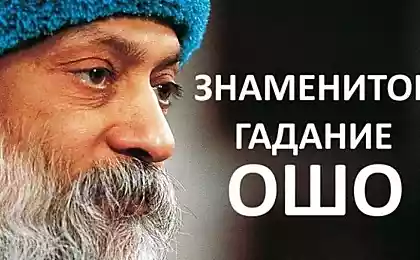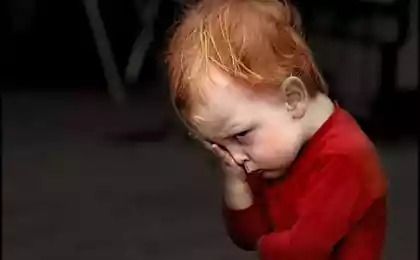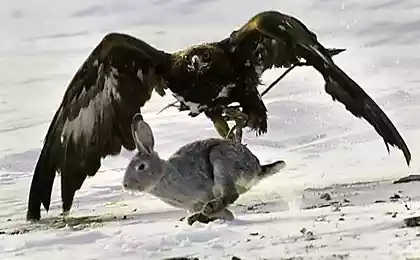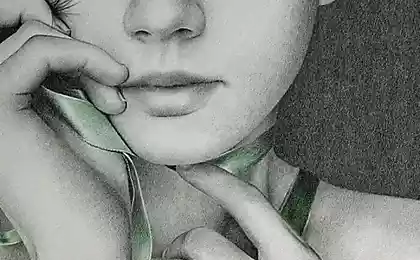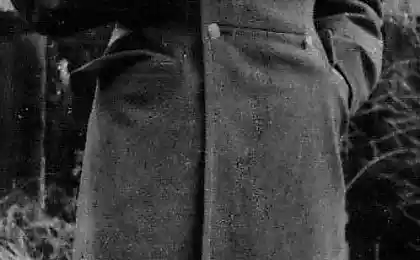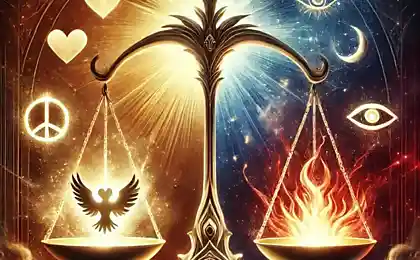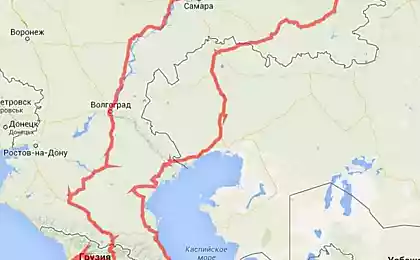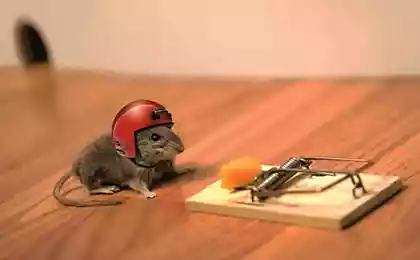470
Instinct, which we do not
Eighty four million four hundred ninety six thousand eight hundred one
How do we know that helping each other is good, and killing each other is bad. A person has a completely unique invention of morality. How did it come about? Do animals like that?
Opinions about what is good and what is bad, we are much more than willing to know these opinions. And despite this, the man loves to kill their own kind. World war and all kinds of Chinese civil strife has claimed tens of millions of lives. This can be compared to ants. At the same time, no other animals don't help each other as people. In lean years the American wolves don't send the Russian brethren chicken feet living lakes rats do not supply water to their less fortunate brethren of the Sahara desert and the crows are much more willing to peck to death the thief, what will put him in a cage, and will feed the next five to ten years.
Of course, many animals have rules of behavior with their own kind. The male deer during the fight, always attack the enemy in the most secure place — the forehead. If the opponent is tripped and turns sideways, then the deer stops and waits, though without any effort could finish the fight, plunging the horn of the opponent in the heart. In territorial battles tigers carefully avoid deadly techniques and often not even release the claws.
If the animal is armed with horns, teeth or hooves, and if necessary, may cause death, intraspecific conflicts are not as sharp and dangerous and turn essentially in ritual dances. Opponents demonstrate the power and fury, represent the willingness to kill, but to flee, just as the opponents to prove their fierceness. The winner will not pursue the defeated or to finish the lying.
It's not the fact that animals are cowardly or compassionate with us. The fact that the ritual of the fight — the most efficient way of resolving the conflict, if there is at least a small risk of death. Why don't we live by these rules?
Because by nature, we being weak. Without knowledge of kung fu unarmed person to kill their own kind is quite difficult: no fangs, no claws he had no. Whether it is a deer with branched horns or tigers with sharp claws and fangs. Both that and another to kill anyone — a piece of cake. Without limiting instincts, they would long ago have destroyed each other. We have the same before the invention of weapons was no reason to develop such an instinct.
But we are not alone. Our closest relatives — chimpanzees — though armed better our and several times stronger, still poorly prepared for the conflict and bloodshed because they are quite common. To kill and eat a fellow chimp a normal thing. Males gather in groups and go to war against a neighboring pack, destroying all who get caught.
In the 70-ies in Gombe national Park (Tanzania) a large flock of chimpanzees split into two smaller groups, and between them at once began to struggle for territory. It is quite quickly came to blows. January 7, 1974, the males of one group were gathered and killed a teenager from another, which was feeding in a tree nearby.
Then began a war that lasted four years. All this time the males are more aggressive group diligently sought out opponents to his recent friends and brothers — and killed them one by one. Left without the protection of females, they were beaten, raped, and enslaved.
The fact that we still have not destroyed each other, in fact a miracle. If those same chimps invented guns or even spears, in the forests of Tanzania would flow rivers of blood. In the end would still be one group of chimpanzees, is built on the law of the strongest, destroying anyone who gets in their way. Likely went to and the peace-loving gorillas and pesky parrots, and even lions.
There is every reason to believe that approximately the same scenario evolved we are. With the invention of weapons, our ancestors got a hitherto unknown ability to kill each other in one motion, whether the blow of a club on the skull or a well-aimed spear throw to the chest. This dramatically changed the structure of human life: from now on the most dangerous enemies were not crocodiles and big cats, and other people.
Hundreds of thousands of years ago our ancestors in small groups roamed the Savannah, and, without a doubt, evolved into violent clashes. The lack of restraint of the instincts turned any armed conflict in the battle for life and death.
However, this increased danger, the need to defend themselves from the enemy, which is much smarter and smarter than any lion, rallied the people inside of the pack. The more mutual, the fewer quarrels the more chances of survival, because any squabble could easily escalate into an armed skirmish, and the loss of even one soldier seriously undermined the chances of survival of the entire group.
On the one hand, the harsh hand of evolution pushed our ancestors to altruism and to strengthen social bonds, and with another — forced to learn all the lessons of conflict resolution, the attainment of which tigers and deer are gone for millions of years. Just now as a kind of controller instead of instinct begins to act the morals and standards of behavior.
Primitive morality of our ancestors was born from the Union of politics and love of neighbor. The danger to be killed his relatives was the biblical fruit of knowledge of good and evil. They have the laws, the manners, the very concepts of "good" and "bad".
But she had given us and cruelty, which many consider the distinctive feature of man. Peaceful tribes always lost warlike and bloodthirsty. The indigenous population of the archipelago of the Chatham Islands in New Zealand, lived according to the law "are not the causes of evil", was almost completely destroyed by the brutal cannibals, the Maori, and those, in turn, affected by Europeans with their guns and slave trade.
Morality for centuries been a double-edged sword, because it was headed inside the tribe and was distributed only to its members. The rest were strangers, animals that should apply according to their animal status, and they, in turn, did the same. Kill or be killed. And only recently, the situation began to change.
The development of sociality allowed us to develop language, language — culture, and that after millennia, has become an independent force. Now for anybody not a secret that the cultural layer is much wider and deeper than represent any particular person, or even than a set of ideas for all people in General.
For culture we are only the carriers and transmitters of information and as meaningful to her as individual neurons are important for the brain in General.
Culture characteristic of so-called Zeitgeist — the changing opinions of the viruses to which we adhere and which are distributed without rational reasons. Three-piece suit suitable for important meetings is no better than t-shirt and shorts. The most sophisticated by our standards gentleman came to be in Ancient Rome for a jester or a madman, completely devoid of taste.
Since culture is largely based on morality, not surprisingly, and moral views have long been out of our control. Morality enters into the spirit of the time, and that his development defines what is considered acceptable now, and what is not.
It is easy to follow in real time: throughout the twentieth century, the cultures of the peoples encountered, mingled and merged like never before. Now we see people in black and women, although only a few hundred years before that and those and others were considered almost a thing.
Morality born out of necessity, human development became independent and now not only changes in itself but also determines the direction of our evolution. Any animal not have thought to consider the other species — we are concerned about the fate of whales, tigers and can put a person in jail if he kills a dog or more than the rhinoceros.
Think about it: scientists from all over the world, including Stephen Hawking, required to recognize all the animals the presence of consciousness and hence to treat them as their own kind; in Argentina, the court ruled that orangutans have rights; many people are abandoning their fur and meat because animals feel pain, etc.
We can complain about the armed conflicts that claim thousands of lives, or the radicals cutting off heads all in a row, but do not be fooled: any other animal in our position would have turned the Earth into a radioactive ashes.
For the proof, no need to go far. Our Pets — cats — real freaks-killer, and each of them cries to the chair.
According to conservative estimates, in the US alone, domestic cats, fed and watered house, kill 2 billion birds and 10 billion small mammals annually. Not from hunger, but for fun.
It turns out that most of the animals we kill, not because they hunt or cut down the forests, but because that breed of bloodthirsty killing machines and deliver them around the world in the most inaccessible parts.
What is the moral we can take away from this? First, humanity is not as bad as commonly believed, but every year it gets better and better. Secondly, if you want to make good in the world has become more — start with your cat. Let his cute face and huge eyes you are not confused — he's a bloodthirsty monster, and no food and affection will change that. Hold monster with an iron fist and never let out.
The rest will make the spirit of the time. published
Source: mtrpl.ru/dobrota
How do we know that helping each other is good, and killing each other is bad. A person has a completely unique invention of morality. How did it come about? Do animals like that?
Opinions about what is good and what is bad, we are much more than willing to know these opinions. And despite this, the man loves to kill their own kind. World war and all kinds of Chinese civil strife has claimed tens of millions of lives. This can be compared to ants. At the same time, no other animals don't help each other as people. In lean years the American wolves don't send the Russian brethren chicken feet living lakes rats do not supply water to their less fortunate brethren of the Sahara desert and the crows are much more willing to peck to death the thief, what will put him in a cage, and will feed the next five to ten years.
Of course, many animals have rules of behavior with their own kind. The male deer during the fight, always attack the enemy in the most secure place — the forehead. If the opponent is tripped and turns sideways, then the deer stops and waits, though without any effort could finish the fight, plunging the horn of the opponent in the heart. In territorial battles tigers carefully avoid deadly techniques and often not even release the claws.
If the animal is armed with horns, teeth or hooves, and if necessary, may cause death, intraspecific conflicts are not as sharp and dangerous and turn essentially in ritual dances. Opponents demonstrate the power and fury, represent the willingness to kill, but to flee, just as the opponents to prove their fierceness. The winner will not pursue the defeated or to finish the lying.
It's not the fact that animals are cowardly or compassionate with us. The fact that the ritual of the fight — the most efficient way of resolving the conflict, if there is at least a small risk of death. Why don't we live by these rules?
Because by nature, we being weak. Without knowledge of kung fu unarmed person to kill their own kind is quite difficult: no fangs, no claws he had no. Whether it is a deer with branched horns or tigers with sharp claws and fangs. Both that and another to kill anyone — a piece of cake. Without limiting instincts, they would long ago have destroyed each other. We have the same before the invention of weapons was no reason to develop such an instinct.
But we are not alone. Our closest relatives — chimpanzees — though armed better our and several times stronger, still poorly prepared for the conflict and bloodshed because they are quite common. To kill and eat a fellow chimp a normal thing. Males gather in groups and go to war against a neighboring pack, destroying all who get caught.
In the 70-ies in Gombe national Park (Tanzania) a large flock of chimpanzees split into two smaller groups, and between them at once began to struggle for territory. It is quite quickly came to blows. January 7, 1974, the males of one group were gathered and killed a teenager from another, which was feeding in a tree nearby.
Then began a war that lasted four years. All this time the males are more aggressive group diligently sought out opponents to his recent friends and brothers — and killed them one by one. Left without the protection of females, they were beaten, raped, and enslaved.
The fact that we still have not destroyed each other, in fact a miracle. If those same chimps invented guns or even spears, in the forests of Tanzania would flow rivers of blood. In the end would still be one group of chimpanzees, is built on the law of the strongest, destroying anyone who gets in their way. Likely went to and the peace-loving gorillas and pesky parrots, and even lions.
There is every reason to believe that approximately the same scenario evolved we are. With the invention of weapons, our ancestors got a hitherto unknown ability to kill each other in one motion, whether the blow of a club on the skull or a well-aimed spear throw to the chest. This dramatically changed the structure of human life: from now on the most dangerous enemies were not crocodiles and big cats, and other people.
Hundreds of thousands of years ago our ancestors in small groups roamed the Savannah, and, without a doubt, evolved into violent clashes. The lack of restraint of the instincts turned any armed conflict in the battle for life and death.
However, this increased danger, the need to defend themselves from the enemy, which is much smarter and smarter than any lion, rallied the people inside of the pack. The more mutual, the fewer quarrels the more chances of survival, because any squabble could easily escalate into an armed skirmish, and the loss of even one soldier seriously undermined the chances of survival of the entire group.
On the one hand, the harsh hand of evolution pushed our ancestors to altruism and to strengthen social bonds, and with another — forced to learn all the lessons of conflict resolution, the attainment of which tigers and deer are gone for millions of years. Just now as a kind of controller instead of instinct begins to act the morals and standards of behavior.
Primitive morality of our ancestors was born from the Union of politics and love of neighbor. The danger to be killed his relatives was the biblical fruit of knowledge of good and evil. They have the laws, the manners, the very concepts of "good" and "bad".
But she had given us and cruelty, which many consider the distinctive feature of man. Peaceful tribes always lost warlike and bloodthirsty. The indigenous population of the archipelago of the Chatham Islands in New Zealand, lived according to the law "are not the causes of evil", was almost completely destroyed by the brutal cannibals, the Maori, and those, in turn, affected by Europeans with their guns and slave trade.
Morality for centuries been a double-edged sword, because it was headed inside the tribe and was distributed only to its members. The rest were strangers, animals that should apply according to their animal status, and they, in turn, did the same. Kill or be killed. And only recently, the situation began to change.
The development of sociality allowed us to develop language, language — culture, and that after millennia, has become an independent force. Now for anybody not a secret that the cultural layer is much wider and deeper than represent any particular person, or even than a set of ideas for all people in General.
For culture we are only the carriers and transmitters of information and as meaningful to her as individual neurons are important for the brain in General.
Culture characteristic of so-called Zeitgeist — the changing opinions of the viruses to which we adhere and which are distributed without rational reasons. Three-piece suit suitable for important meetings is no better than t-shirt and shorts. The most sophisticated by our standards gentleman came to be in Ancient Rome for a jester or a madman, completely devoid of taste.
Since culture is largely based on morality, not surprisingly, and moral views have long been out of our control. Morality enters into the spirit of the time, and that his development defines what is considered acceptable now, and what is not.
It is easy to follow in real time: throughout the twentieth century, the cultures of the peoples encountered, mingled and merged like never before. Now we see people in black and women, although only a few hundred years before that and those and others were considered almost a thing.
Morality born out of necessity, human development became independent and now not only changes in itself but also determines the direction of our evolution. Any animal not have thought to consider the other species — we are concerned about the fate of whales, tigers and can put a person in jail if he kills a dog or more than the rhinoceros.
Think about it: scientists from all over the world, including Stephen Hawking, required to recognize all the animals the presence of consciousness and hence to treat them as their own kind; in Argentina, the court ruled that orangutans have rights; many people are abandoning their fur and meat because animals feel pain, etc.
We can complain about the armed conflicts that claim thousands of lives, or the radicals cutting off heads all in a row, but do not be fooled: any other animal in our position would have turned the Earth into a radioactive ashes.
For the proof, no need to go far. Our Pets — cats — real freaks-killer, and each of them cries to the chair.
According to conservative estimates, in the US alone, domestic cats, fed and watered house, kill 2 billion birds and 10 billion small mammals annually. Not from hunger, but for fun.
It turns out that most of the animals we kill, not because they hunt or cut down the forests, but because that breed of bloodthirsty killing machines and deliver them around the world in the most inaccessible parts.
What is the moral we can take away from this? First, humanity is not as bad as commonly believed, but every year it gets better and better. Secondly, if you want to make good in the world has become more — start with your cat. Let his cute face and huge eyes you are not confused — he's a bloodthirsty monster, and no food and affection will change that. Hold monster with an iron fist and never let out.
The rest will make the spirit of the time. published
Source: mtrpl.ru/dobrota
